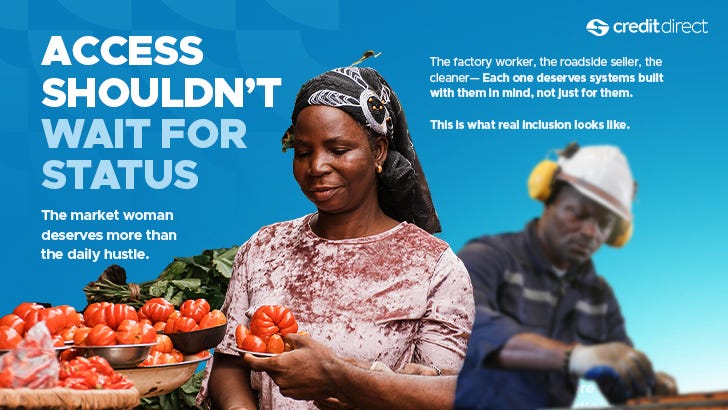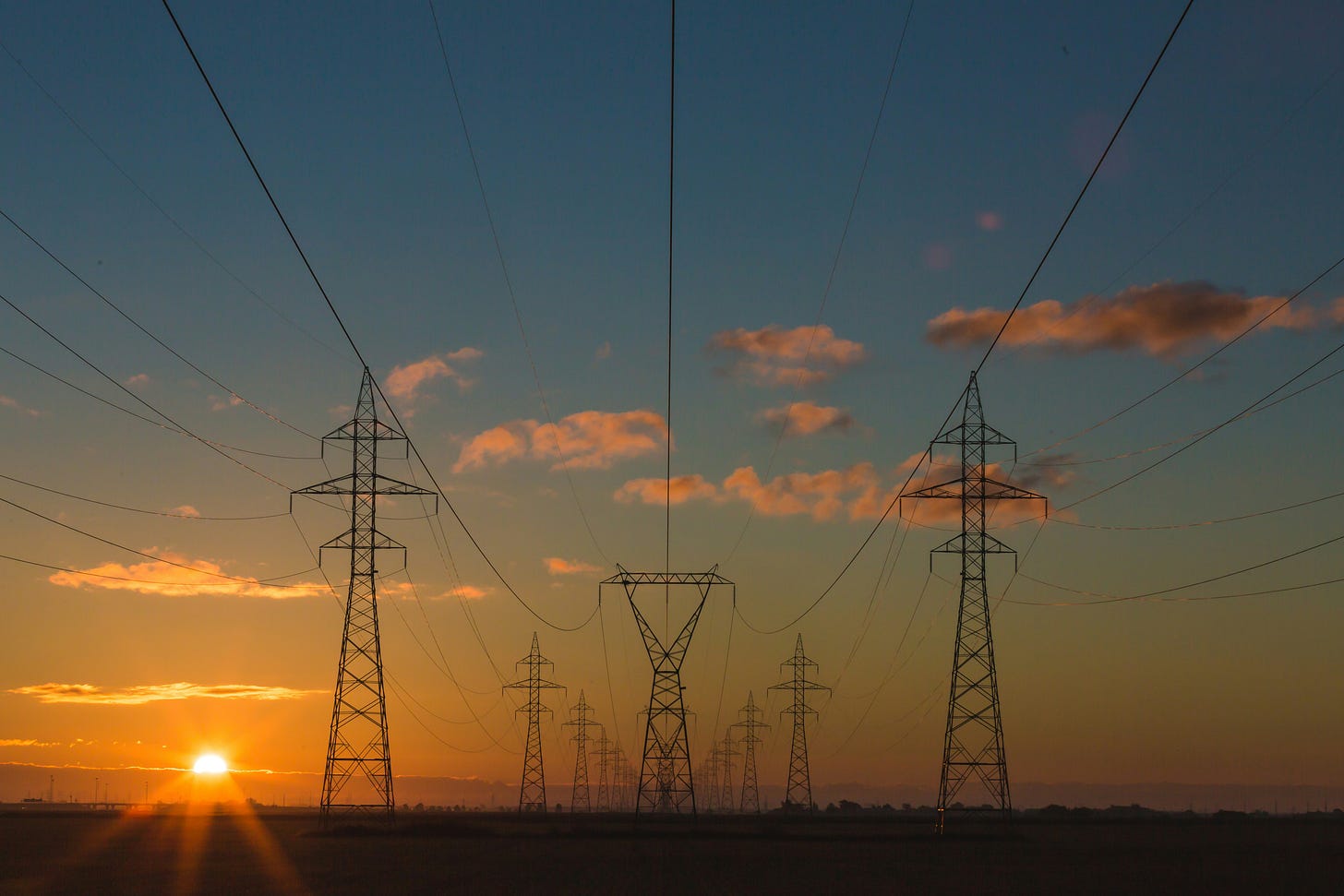A $56 million power bill
Power bills and fintech's gold rush
Welcome to the 20+ people who joined us since Friday. If this email was forwarded to you, subscribe for free:
TOGETHER WITH CREDIT DIRECT
Most say financial inclusion. We’re showing what it truly means.
From micro pensions to micro insurance and investment, we’re giving everyday Nigerians access to tools they’ve never had before.
2 Fascinating News Stories
#1 IHS Towers and a $56 million power bill
What happened?
IHS Towers spent $56 million to generate power for its Nigerian operations in Q2 2025. It’s a big number, but lower than the $71 million it spent in Q2 2024.
Power is IHS’s single biggest expense, and bringing it down is partly what helped the tower company deliver a second consecutive profitable quarter, a sharp reversal from the $1.61 billion it lost in FY2024.
The turnaround began with contract renegotiations with its biggest clients, MTN and Airtel. For years, IHS carried the can whenever diesel prices spiked. That changed in 2024.
The new contracts spread the risk, making some fees dollar-denominated (so IHS isn’t wiped out when the naira crashes), others in naira (so telcos aren’t stuck paying everything in hard currency). It also inserted a clause that forces telcos to share in the pain of higher diesel prices.
In South Africa, IHS went even further, walking away from diesel entirely and passing electricity bills directly to clients. Nigeria isn’t there yet, but the changes mean fuel prices can no longer dictate whether the company sinks or swims.
So What?
Most people never think about the companies that keep Nigeria’s telecom towers humming. They’re the plumbing of the digital economy, invisible until they break. But 2023 changed that.
When the government ended fuel subsidies and devalued the naira, petrol tripled in price, diesel costs ballooned, and the boring infrastructure players were bleeding alongside the telcos they serve.
MTN and IHS reported massive losses, and regulators were forced to approve higher call and data tariffs for the first time in over a decade.
That pain reset the industry. Beyond passing costs to consumers, tower firms like IHS had to rethink their energy mix. Today, the company uses a hybrid model: grid power where it’s available, solar where it makes sense, and diesel as the fallback.
The stakes go well beyond IHS’s bottom line. Nigeria’s fragile electricity sector desperately needs large commercial customers to anchor the grid. Their steady demand underwrites generation and distribution, making the system more reliable for everyone else. If IHS swings too far toward solar, the grid loses yet another dependable anchor. If it leans too hard on diesel, it risks being gutted again by a weaker naira or another spike in global fuel prices.
That balancing act puts IHS at the intersection of two industries that Nigerians can’t live without: telecoms and power. And if it slips, both sides will feel the ripple effects.
#2 The shovel sellers’ problem in the ‘payments+inventory’ gold rush
Moniepoint plans to roll out an Android POS that takes payments, updates inventory, and prints a receipt/invoice in one go.
Rough translation: the product will go head-to-head with Orda, Doroki, Traction, and the rest of the startup pack that want to stop your staff from robbing you blind.
Theft is widespread in Nigerian retail. At bars, waiters swipe your card on the company’s POS but serve you beer from their stash. At supermarkets, cashiers log phantom sales and pocket the cash.
The pattern is the same across industries: inventory rarely keeps pace with payments, creating a margin for fraud. No one will spell this out in a press release, but if each payment automatically updates stock, you’ve at least closed one of the oldest leaks in the system.
So what?
It’s a pain point Chowdeck tried to address when it bought Mira last month, but from a different angle. For a food delivery platform, the nightmare isn’t staff theft but customer frustration: when a rider arrives at a restaurant only to find an item is out of stock. Mira’s inventory tools fix that by syncing menus with real stock, saving riders wasted trips and customers broken promises.
Moniepoint’s angle is less about customer experience and more about protecting merchants from being fleeced by staff. Both are shovel-sellers in Nigeria’s payments+inventory gold rush, just serving different miners.
On paper, the market looks massive: 5.9 million active POS terminals and 40 million MSMEs. But most of those terminals are agent devices, not real merchants. And most MSMEs are nano-scale, low-margin outfits already struggling with rent, power, and staff costs. How many can pay ₦6k–₦8.5k a month for a “smart” POS?
Moniepoint does have the heft: 1m+ active terminals, ₦10 trillion in monthly volume, and the ability to bundle credit on top. That advantage could “featurise” smaller players — turning their entire product into just another Moniepoint tab. But enterprise SaaS in Nigeria is rarely straightforward. SMEs in survival mode pay for things that expand margins or keep the lights on. Fraud prevention might qualify, but plenty will still stick with the free-ish POS they got from their bank and live with the leakages.
Is this gold rush big enough for everyone selling shovels? Chowdeck thinks yes, if you make restaurants more reliable. Moniepoint thinks yes, if you stop staff from stealing. But with a fragile SME base, the real question isn’t if one big company ‘featurises’ competitors, it’s whether there are enough paying businesses to go around.
See you next week!





Didn’t realise staff theft was the reason for these products. I assumed better inventory and restock management. Which our people could always do manually.
IHS is on a roll then… 😁